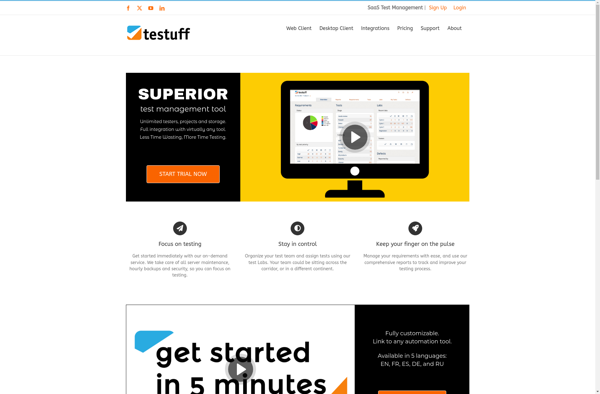Description: Testuff Test Management is a test case management system that helps teams organize, track, and manage software testing efforts. It includes features like test planning, test case authoring, test execution tracking, defect logging, reporting, and metrics.
Type: Open Source Test Automation Framework
Founded: 2011
Primary Use: Mobile app testing automation
Supported Platforms: iOS, Android, Windows
Description: TestWave is an automated software testing tool used by developers and QA professionals. It supports various testing methodologies like functional, regression, load, and performance testing across web, mobile, and desktop applications.
Type: Cloud-based Test Automation Platform
Founded: 2015
Primary Use: Web, mobile, and API testing
Supported Platforms: Web, iOS, Android, API

